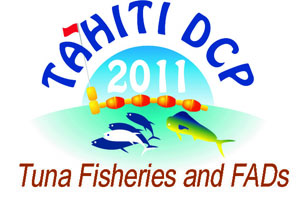Involving tuna fishers in bycatch reduction research: the ISSF Skippers Workshops
1 : AZTI-Tecnalia
Spain -
Espagne
2 : Institut de Recherche en Développement
(IRD)
Victoria -
Seychelles
3 : Inter-American tropical Tuna Commission
8604 La Jolla Shores Dr la Jolla, CA 92037 -
États-Unis
4 : University of Hawaii
Hawaii -
États-Unis
5 : AZTI
Herrera Kaia - Portualdea z/g E-20110 Pasaia (Gipuzkoa) -
Espagne
6 : ISSF
* : Corresponding author
USA -
États-Unis
Since 2010, the International Seafood Sustainability Foundation has been facilitating by-catch mitigation workshops globally at key tuna ports gathering fishers from the FAD purse seine industry. In the last year workshops where organized in the U.S.A. (fleets operating in EPO, WCPO), Ecuador (EPO), Panama (EPO), Ghana (ATL), Seychelles (IO), Mauritius (IO), Spain (IO, ATL, EPO), American Samoa (WCPO), Marshall Islands (WCPO) and Federated States of Micronesia (WCPO). The concept is to work in conjunction with captains and other fleet members to identify best fishing practices to reduce bycatch (e.g. small tunas, sharks, etc.) when setting on FADs. Some of the themes covered include species identification prior to setting, ecological FADs, attraction of sharks away from FADs, modifying selectivity of gear, best release practices of elasmobranchs and turtles. The skippers' workshops are part of the broader ISSF´s by-catch project and feedback gained from fishers is considered for research activities to be favored during ISSF's research cruises. A second round of skippers workshops is now about to begin where ISSF scientists will show which mitigation techniques and practices have worked best so far and captains can further refine them or provide new ideas. This feedback process between scientists' research at sea and skippers' workshops will continue until the best sustainable practices are adopted by the FAD-fishing fleets.

 PDF version
PDF version
